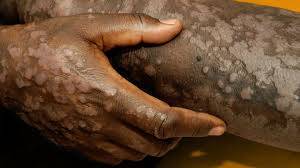Psoriasis: Effective Prevention Strategies and Lifestyle Changes
Introduction:
Psoriasis is a chronic autoimmune condition characterized by patches of red, inflamed skin covered with silvery scales. It affects millions of people worldwide, causing physical discomfort and emotional distress. While there is no definitive cure for psoriasis, adopting preventive measures and lifestyle changes can help manage symptoms and reduce flare-ups. In this comprehensive guide, we will explore the various strategies to prevent psoriasis and improve overall skin health.
Understanding Psoriasis:
Before delving into prevention strategies, it's essential to understand the underlying causes and triggers of psoriasis. While the exact cause remains unknown, genetics, immune system dysfunction, and environmental factors play significant roles in its development. Common triggers include stress, infections, injury to the skin, certain medications, and weather changes. Psoriasis can manifest in different forms, including plaque psoriasis, guttate psoriasis, inverse psoriasis, pustular psoriasis, and erythrodermic psoriasis, each with its unique characteristics and triggers.
Prevention Strategies:
1. Maintain a Healthy Diet:
- A well-balanced diet rich in fruits, vegetables, whole grains, and lean proteins can support overall health and potentially reduce inflammation associated with psoriasis.
- Omega-3 fatty acids found in fatty fish like salmon, mackerel, and sardines have anti-inflammatory properties and may alleviate symptoms.
- Limiting the consumption of processed foods, red meat, and sugary snacks can help manage weight and reduce the risk of flare-ups.
2. Manage Stress:
- Stress is a common trigger for psoriasis flare-ups. Practicing stress-reducing techniques such as meditation, yoga, deep breathing exercises, and mindfulness can help manage stress levels.
- Engaging in hobbies, spending time with loved ones, and maintaining a healthy work-life balance are also essential for overall well-being.
3. Maintain a Healthy Weight:
- Obesity is associated with an increased risk of psoriasis and can exacerbate symptoms. Maintaining a healthy weight through regular exercise and a balanced diet can help reduce inflammation and improve psoriasis outcomes.
4. Avoid Skin Trauma:
- Injury to the skin, such as cuts, scrapes, and sunburns, can trigger psoriasis flare-ups known as the Koebner phenomenon. Take precautions to protect the skin from trauma and avoid activities that may cause injury.
5. Practice Good Skincare:
- Keeping the skin moisturized can help soothe dryness and reduce itching associated with psoriasis. Use fragrance-free moisturizers and gentle cleansers to prevent irritation.
- Avoid hot showers and opt for lukewarm water instead, as hot water can strip the skin of its natural oils and exacerbate symptoms.
- Choose skincare products labeled hypoallergenic and non-comedogenic to minimize the risk of irritation and allergic reactions.
6. Quit Smoking and Limit Alcohol Consumption:
- Smoking and excessive alcohol consumption can worsen psoriasis symptoms and decrease the effectiveness of treatment. Quitting smoking and moderating alcohol intake can improve overall health and reduce flare-ups.
7. Stay Hydrated:
- Drinking an adequate amount of water is essential for maintaining skin hydration and overall health. Aim for at least eight glasses of water per day to keep the skin hydrated and flush out toxins from the body.
8. Protect Against Sun Exposure:
- While sunlight can benefit psoriasis symptoms by slowing the rapid growth of skin cells, excessive sun exposure can trigger flare-ups and increase the risk of skin cancer.
- Apply broad-spectrum sunscreen with an SPF of 30 or higher to exposed skin before going outdoors, and wear protective clothing, hats, and sunglasses to shield the skin from harmful UV rays.
9. Follow Treatment Plans:
- If diagnosed with psoriasis, it's crucial to follow the prescribed treatment plan outlined by a healthcare professional. This may include topical treatments, oral medications, phototherapy, or biologic therapies, depending on the severity of symptoms.
- Consistency and adherence to treatment are key to managing psoriasis effectively and preventing flare-ups.
Conclusion:
While psoriasis is a chronic condition with no definitive cure, adopting preventive measures and lifestyle changes can significantly improve symptoms and enhance overall quality of life. By maintaining a healthy diet, managing stress, practicing good skincare, and avoiding triggers, individuals with psoriasis can take control of their condition and minimize flare-ups. It's essential to work closely with healthcare professionals to develop a personalized treatment plan tailored to individual needs and preferences. With proper care and proactive management, it's possible to live well with psoriasis and enjoy healthier, happier skin.




No comments yet
Be the first to share your thoughts!